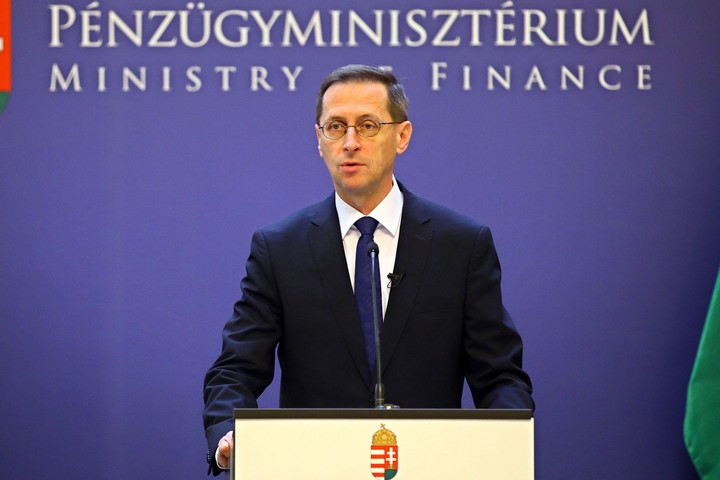The United States wants to put pressure on Hungary by canceling the double taxation agreement to change its position on the global minimum tax, the finance minister said in an interview with MTI on Saturday.
Mihály Varga stated that he was not surprised by the decision of the President of the United States to terminate the bilateral agreement on the avoidance of double taxation concluded with Hungary in 1979.
He added that it was not surprising because the government had previously received a message from the United States that Hungary should abandon its position regarding the global minimum tax.
Before the June meeting of the Council of Finance Ministers of the EU Member States (Ecofin), US Treasury Secretary Janet Yellen asked Hungary to change its position by telephone, but Mihály Varga informed her that this was not possible; then his American colleague warned that the bilateral agreement could be terminated, he recalled.
The government was officially notified of the termination on Friday.
"I must definitely state that Hungary still considers the competitiveness of the European Union and the Hungarian economy to be important, so we do not agree with tax increases that would significantly increase the tax burden on local businesses, and this is what the proposal for the global minimum tax is," said Mihály Varga.
He emphasized that the government still maintains that the real reasons for terminating the agreement are not the tax policy and technical arguments included in the official justification, but rather the fact that Hungary stood up for its own and the European Union's long-term interests.
"We continue to see that, especially in the current war situation and when energy prices have run wild, such a step is unjustified, and it is also difficult to understand, since the substantive start of the global tax reform was modified by the international community to 2024, and the EU directive also includes this" - emphasized Mihály Varga, pointing out that there is still plenty of time for negotiations and solving problems before the target date.
The Minister of Finance also spoke about the fact that in 2010, Hungary already ratified the new version of the now terminated agreement, which would fully address the American concerns that have just been raised. This agreement has not yet been signed by the United States, he added.
He also considered it important to say that the American side objected to the fact that the corporate tax in Hungary has been significantly reduced, which is incomprehensible because in the case of an American company operating here, the United States includes the tax paid in Hungary in the tax burden, i.e. the total tax burden of the company has not decreased .
He added that it's not that companies don't pay taxes in Hungary, it's just that the government focuses on consumption and sales taxes instead of corporate tax.
"This decision is a question of tax sovereignty, which all countries must respect each other," underlined the head of the ministry.
He emphasized that Hungary has been a cooperative partner in tax relations up to now, and the government strives to resolve the issues that arise with the respective state.
He emphasized: if the government were to accept the proposal, it would have to raise the Hungarian corporate profit tax from 9 percent to at least 15 percent, which would not help the situation of local businesses.
As he said, good economic relations between the two countries are not a prerequisite for the agreement that has just been terminated - Brazil, Argentina, Serbia and Singapore have not entered into such an agreement with the United States either - and the American companies also chose Hungary because there is a favorable business environment here and taxation is also favorable.
"We find it strange that the United States canceled this agreement with Hungary, while it did not cancel its tax agreement with Russia, for example," said Mihály Varga.
Source: hirado.hu
Featured Image: MH












